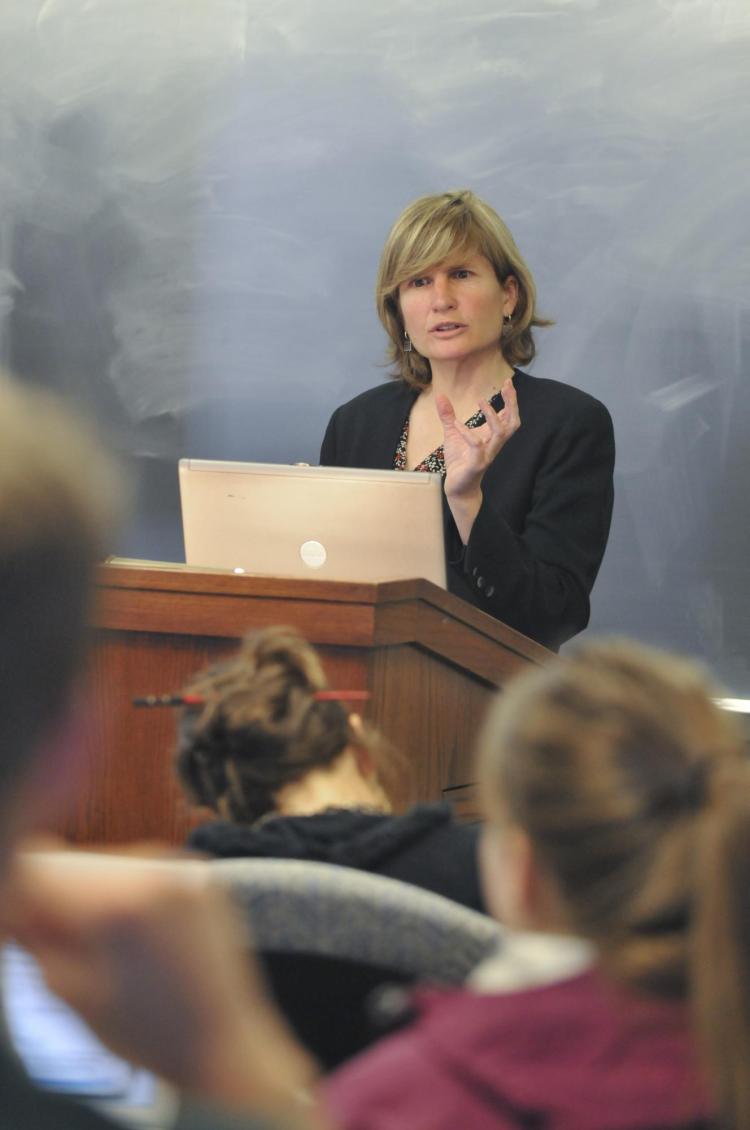
An essay written by Professor and Ira C. Rothgerber, Jr. Chair in Constitutional Law Helen Norton,“Government Speech and the War on Terror,” appeared in the November 2017 issue of Fordham Law Review. The article addresses the role of the U.S. government as speaker, rather than moderator, during wartime. An excerpt from the introduction is featured below:
“The government is unique among speakers because of its coercive power, its substantial resources, its privileged access to national security and intelligence information, and its wide variety of expressive roles as commander-in-chief, policymaker, educator, employer, property owner, and more. Precisely because of this power, variety, and ubiquity, the government's speech can both provide great value and inflict great harm to the public. In wartime, more specifically, the government can affirmatively choose to use its voice to inform, inspire, heal, and unite—or instead to deceive, divide, bully, and silence.
In this essay, I examine the U.S. government's role as speaker (rather than as regulator of speech) in its war on terror, drawing from historical and contemporary examples to illuminate the great power of government’s wartime expression. As we shall see, the government’s expressive choices in wartime can be enormously valuable. On the other hand, the government has also engaged in wartime fearmongering and lies, with at times devastating effects to its targets specifically and to the American public collectively. Many of the challenges involving the government's speech in today’s war on terror are familiar (often painfully so), while some seem different in degree and perhaps in kind.
Although courts and commentators have discussed at some length the First Amendment issues raised by the government’s restriction of others' speech as part of its war on terror, relatively little attention has yet been devoted to the implications of the government's own expression in this setting. Except for the Court’s interpretation of the Establishment Clause to limit government’s religious speech in certain contexts, for example, the Court’s government speech doctrine remains incomplete in that it has yet to address the ways in which the government’s own speech might affirmatively threaten other constitutional values."
Norton’s scholarship and teaching interests revolve around constitutional law, civil rights, and employment discrimination law. She has received multiple awards and recognitions for her teaching, including the Excellence in Teaching Award and was appointed a University of Colorado Presidential Teaching Scholar in 2014. .
There are several opportunities to hear Norton discuss her research in 2018. As a featured speaker at CU Boulder Next in Los Angeles on Feb. 24, she will lecture on government speech in the age of social media. On Feb. 28, she will deliver a Colorado Law Talk entitled "The Government's Speech and the Constitution" at Sherman & Howard L.L.C. in Denver.


